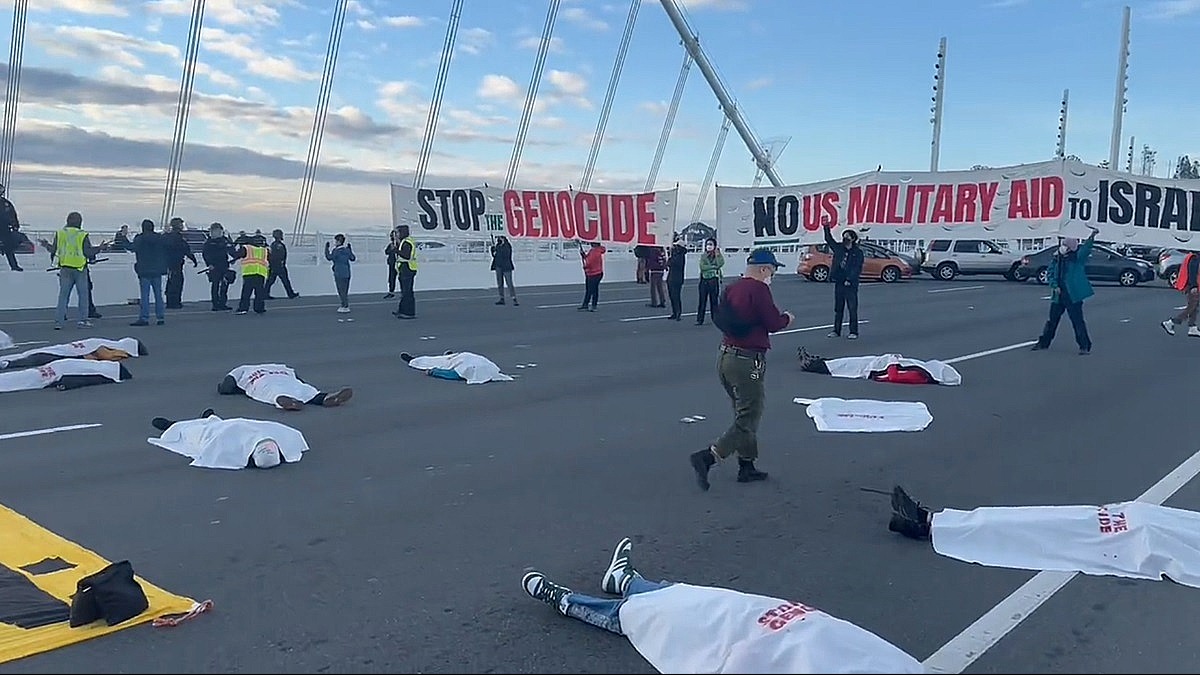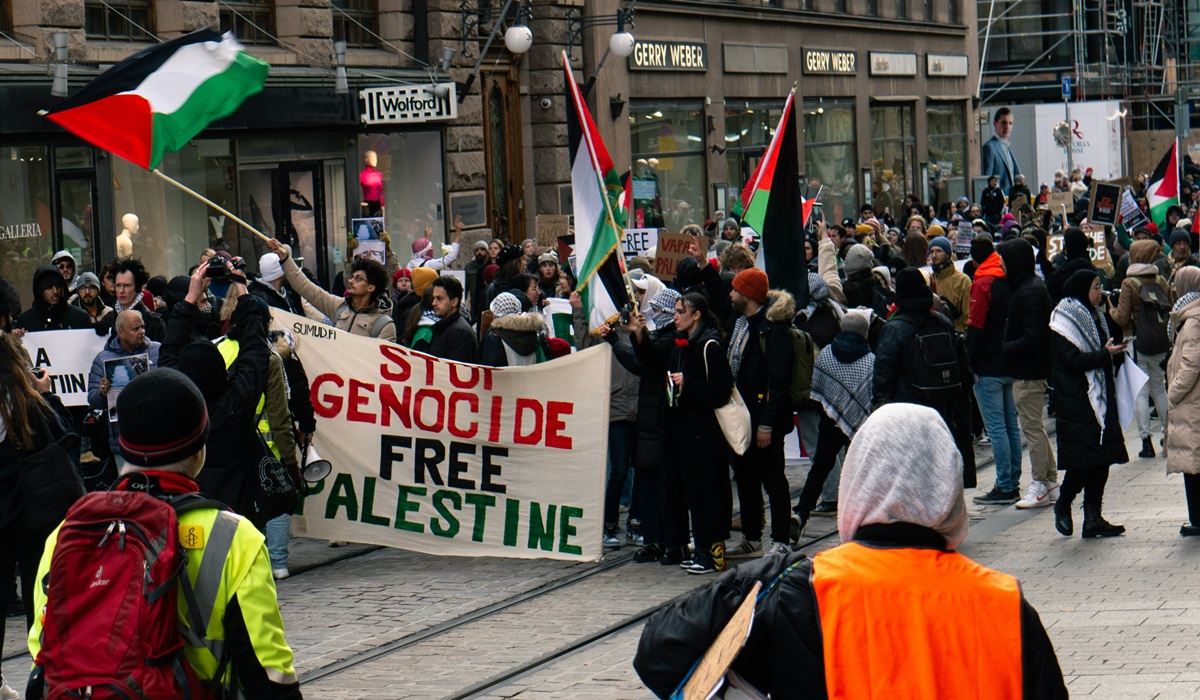Global Protests Escalate, Calling for Ceasefire and Accountability in Israel-Palestine Conflict
- Naomi Dela Cruz
- Middle East
- Trending
- November 17, 2023

In recent weeks, mass protests have erupted across the globe, urging Israel to cease its military actions in the ongoing conflict with Palestine. While the focus is primarily on Israel, protesters are also directing their calls for a ceasefire towards world leaders who support the Israeli government. The unrest has reached a boiling point, as seen with the closure of significant landmarks such as the Bay Bridge and a sit-in at Scotia Plaza in Ontario, targeting Scotia Bank’s investments in an Israeli defense company.
Protestors are demanding Scotia Bank’s cessation of its investments in Elbit Systems Ltd the Israeli defense contractor accused of manufacturing lethal weaponry, some of which have been banned by Canada. This call for divestment highlights the intersection of political and economic interests, emphasizing corporations’ responsibility in influencing international conflicts.
The core demand of these protests is a halt to the hostilities, but they also underscore the need for accountability from those endorsing and supporting Israel’s military actions. The demonstrations are not confined to specific regions; instead, they reflect a growing global concern for the well-being of those caught in the crossfire.
The situation in Gaza, the epicenter of the conflict, has been described as a humanitarian crisis. The term almost seems inadequate when considering the gravity of the conditions on the ground. The population faces a grim reality of death, starvation, and a severe lack of necessities, including food, water, and gas supplies. The destruction of homes and the bombing of hospitals and medical facilities have compounded the suffering, forcing mass migration as a means of survival.
The captured prisoners, particularly from Israel, add another layer of complexity to the crisis. Families anxiously await the return of their loved ones and mourn those that have passed. The prolonged captivity and the uncertain fate of these individuals contribute to the heightened tensions in the region.
Perhaps the most distressing aspect is the staggering number of casualties, with over 11,000 Palestinians, a significant proportion being children, reported dead as a result of Israeli airstrikes. The toll on innocent lives underscores the urgency for a swift resolution to the conflict and an end to the cycle of violence.
As the global community watches in horror, the question of international involvement becomes crucial. The rallying cry from the protesters is clear: those without a genuine interest or understanding of the region’s complexities should refrain from influencing its affairs. The hope is for a resolution prioritizing the well-being and rights of the people directly affected by the conflict.
The road to recovery appears long and arduous in the face of this dire situation. The international community must take measured and unbiased steps toward facilitating a just and lasting peace. The gravity of the humanitarian crisis demands a collective effort to bring about a resolution that prioritizes human life and dignity above political interests. Only then can the region begin to heal from the wounds inflicted by this protracted conflict.








